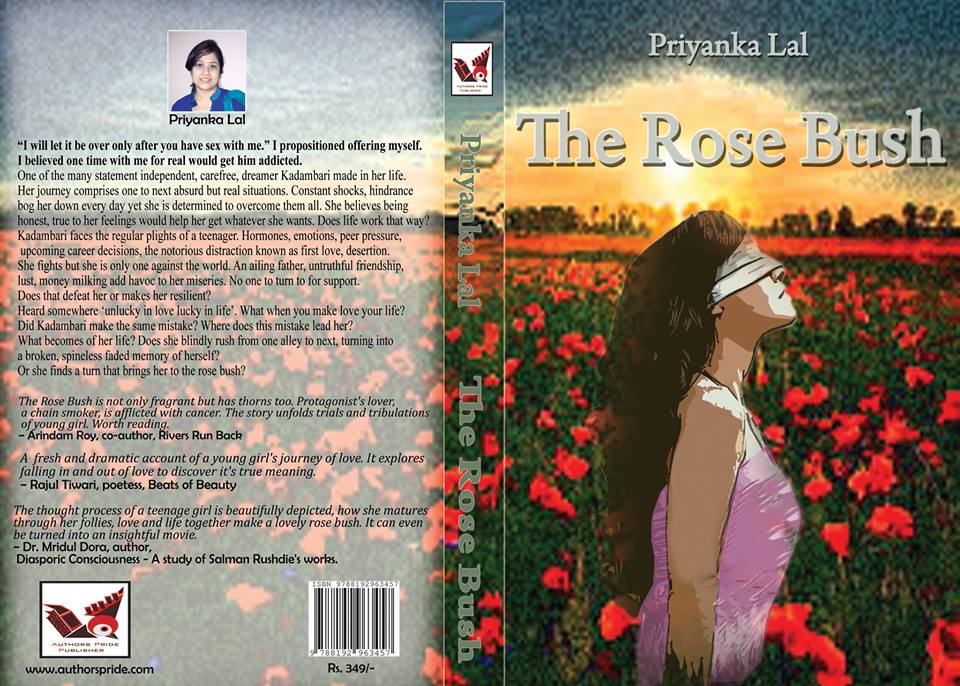Before the audience that was waiting for the launch of Priyanka Lal’s first novel The Rose Bush was told anything about the book by the event’s hosts, they were told that its author could make good lemon tea. Atta Galatta seemed to have no customers other than those known by Priyanka Lal on the afternoon of 13th June. Only one woman sat alone at her laptop with coffee, while around her children demanded food from women in silk saris, babies cried, and men sat on comfortable wooden chairs and talked.
“Even though she’s my character, you can take inspiration from her,” Priyanka Lal said rather graciously, as she referred to her own “hidden talents of writing a book.” The Rose Bush, which is meant to be the story of a girl and her hardships, seemed to have the same problematic narrative that numerous other books do—talking about her protagonist, Lal said, “It would not have been possible for her to reach where she did without the ‘man effect’ in her life. The men in her life are responsible for her being there.” She said this happily, as though duh, finding the right man is the singular most important event in a woman’s life. Without them, how will we ever overcome problems and do anything that matters to us?
In front of me a woman was struggling to stop a baby from crying. Lal’s daughter was running around chairs and ignoring her father. A man behind me was whispering about how difficult he was finding his new job in a software company. The woman who Lal had described as her “childhood friend” was telling the man next to her that she was a Marwadi too, that her husband was parking their car, and that she was happy to see Lal, “Finally follow her dreams, and be where she had to be.” Without hesitation she compared The Rose Bush with Mills and Boon and Jane Austen. When Lal later said, “Without my husband, neither this book would be there nor I,” this friend nodd ed vigorously.
ed vigorously.
The book was launched by Dr Jaya Bhat, a gynaecologist, who Lal called one of her, “Sources of inspiration.” It seemed ironic—Lal quoted her as saying, “I am going to work as long as my limbs are moving,” after she had giggled about the oh so important ‘man effect’, all in a single breath. And then all irony disappeared as Bhat said, “We are all romantics, we all love our husbands or learn to love the husbands our parents pick for us.” I should not have got so hopeful; over here it was as though conversations between women had to be about men—not women and their work, not women and the spaces they lived in, or even about themselves—these were just unimportant background.
My surprise was less at what Priyanka Lal had said, than at how blatantly she said it, and this is bad enough. The ‘trailer’ of the book that was played before she spoke should have been my warning. It was simple, really: girl has problems, girl meets boy, girl gets over problems; a woman wanting to be alone can never be a choice. The video was exactly this, a series of photographs of a lonely blonde haired woman and a brooding hunk of a man, where the woman’s expressions shifted from sad to happy and no longer lonely when they met. “Make your husbands read this book too, they will be inspired and you will be pampered,” Lal said. I rolled my eyes, and the woman next to me made an incredulous gargling sound. At least I wasn’t alone. The woman who had been working on her laptop hadn’t paid the proceedings more than five minutes of attention.
Latest posts by Ila Ananya (see all)
- Dear Mr Taxi Driver - 8th January 2016
- Etc. - 2nd December 2015
- When I met a writer - 29th July 2015





